Profit from a cleaner, greener future with electric cars
Electric cars have been a long time in the making – but now they could be set to take off as they are poised to go mass market. Eoin Gleeson looks at how you can profit.
Get the latest financial news, insights and expert analysis from our award-winning MoneyWeek team, to help you understand what really matters when it comes to your finances.
You are now subscribed
Your newsletter sign-up was successful
Want to add more newsletters?

Twice daily
MoneyWeek
Get the latest financial news, insights and expert analysis from our award-winning MoneyWeek team, to help you understand what really matters when it comes to your finances.

Four times a week
Look After My Bills
Sign up to our free money-saving newsletter, filled with the latest news and expert advice to help you find the best tips and deals for managing your bills. Start saving today!
The electric car has been a long time in the making but now it could be set to take off as it goes mass market. Eoin Gleeson looks at how you can profit.
When electric vehicles first hit the roads in the late 19th century, they caused mayhem. Drivers had to navigate between cyclists and panicky pedestrians. Horses regarded them with intense suspicion rearing and bolting whenever these silent vehicles drove up alongside them. And it wasn't long before battery-powered vehicles were competing for space with other 'horseless carriages' cars with petrol engines and vehicles run on steam. Something had to give.
The race to become king of the road came to a head on 11 June, 1895. That morning, 22 horseless carriages pulled up side by side at Versailles to start a widely-publicised race that would put the competing vehicles to the ultimate test a 700-mile round trip from Paris to Bordeaux and back. As they sped down the poplar-lined Route Nationale, the limitations of each car soon became apparent. A Belgian-built electric vehicle called La Jamais Contente, which had set a land speed record of 68mph took an early lead. But it discharged its batteries after an hour. Another lead-acid battery car crept ahead, stopping to change its batteries every 24 miles. But it never made it to the finish. It was the petrol-powered cars that triumphed the winner finished the race in 48 hours and 48 minutes, at an average speed 14.4mph.
MoneyWeek
Subscribe to MoneyWeek today and get your first six magazine issues absolutely FREE

Sign up to Money Morning
Don't miss the latest investment and personal finances news, market analysis, plus money-saving tips with our free twice-daily newsletter
Don't miss the latest investment and personal finances news, market analysis, plus money-saving tips with our free twice-daily newsletter
The limited range of the electric vehicles had sealed their fate. The discovery of Texan oil 25 years later killed off the electric car completely. As the price of oil plunged, petrol-powered cars became affordable for the average American. It no longer made sense to pay out $3,000 for an electric carriage when you could get a Ford Model T for $650.
The electric car goes mass market
But oil is not cheap today. When petrol tipped $4 a gallon last year, Americans had a rapid change of heart about the long-range monster vehicles they'd been driving for the last few decades. This year, they have driven a total of 123 billion fewer miles than last, the equivalent of taking eight to ten million drivers off the road. "We are witnessing the beginning of a fundamental shift in driving habits," says Ed McMahon of the Urban Land Institute. With the price of oil remaining around $70 a barrel and threatening to spike in the longer run, Americans will have to adjust to taking fewer journeys and living closer to where they work.
Western governments are just as keen to wean their economies off oil. In the US, 70% of oil demand stems from transport. If electric vehicles go mainstream, the US could cut oil imports by as much as 3.7 million barrels a day, says Thomas Becker of the University of California. That's roughly the amount it imports daily from the Persian Gulf and Venezuela. That's why the US Energy Department has just handed out $8bn in loans to Nissan, Ford and Tesla to finance green car programmes.
It's not just governments who are throwing their weight behind electric vehicles. The car industry is already showing off affordable electric cars that may be less than a year from market. Just this week Nissan unveiled the first mass-market electric vehicle, the Nissan Leaf. It plans to produce 200,000 a year by 2010. By 2020, one in ten cars sold will be electric, said Nissan's chief executive Carlos Ghosn this week.
As well as the car manufacturers, electric vehicles have other powerful industrial backers battery makers and utilities. As electric cars go mainstream, these industries will be transformed. Even Bolivian president Evo Morales is rubbing his hands with glee at the prospect of mass-market electric vehicles (see China's lithium war). So how can investors profit from the move to bring electric vehicles to the masses?
1. The car industry
There's a long history of conspiracy theories around the electric vehicle. A 2006 documentary, Who Killed the Electric Car?, accused General Motors of working with the oil industry to destroy the electric car. GM had produced 800 prototypes of the electric model EV1, lending some to Hollywood stars such as Mel Gibson and Ted Danson. But the car giant suddenly recalled the prototypes and crushed them in Californian scrap yards. Cue dark mutterings about corporate malevolence.
But in truth, the failure of electric cars to take off was probably down to something more prosaic: cost. The EV1 prototype was a tiny two-seater that cost $80,000 to build, about twice the guide price of the actual car. Since then, advances in battery technology have slashed production costs. GM's forthcoming Chevy Volt a plug-in hybrid vehicle, powered by an electric motor with a back-up petrol engine will seat four and is set to cost half as much as the EV1 to produce. The cost of the battery will also keep falling by 6%-8% a year, according to consulting firm McKinsey. Elon Musk, whose company Tesla Motors will bring the first fully electric car to market this year, reckons Tesla will turn a profit in a matter of months.
That's good news. But will consumers be able to afford these cars? Very few are buying right now. In the US, registrations of new hybrid vehicles fell 13% last year, although that's against an 18% fall in overall car sales. But electric cars can be made to be just as affordable as gas-fuelled cars, says Becker; it comes down to the pricing model. These vehicles are unlikely to be priced like gas-fuelled cars. One system, already adopted in Israel and Denmark, is to sell cars on a pay-per-mile contract a bit like a mobile phone. So the manufacturer subsidises the initial cost of the car, then incorporates the financing into a service contract which pays for the electricity and battery costs.
Government subsidies will also make a big difference, says McKinsey. China, for example, has said it will cover $8,800 of the cost of each electrified vehicle bought by more than a dozen of its big-city governments and taxi fleets. The country has already introduced stricter fuel-efficiency measures than the US, and has set a goal of producing half a million electrified cars by 2012. Meanwhile, US president Barack Obama's stimulus bill includes a $7,500 tax credit for vehicles with at least a 16kWh battery.
And if the oil price remains at current levels or higher over the longer term (which seems likely, although we expect it to weaken in the shorter run) electric vehicles will become all the more affordable compared to gas-fuelled cars. In Europe where petrol costs more due to taxes hybrids could be just as cheap to run as a gas fuelled car with an oil price of $60 a barrel, says McKinsey. In the US, they'll be cheaper when petrol rises above $4 a gallon again. As a result of all this, JP Morgan reckons the global electric car market will grow from 740,000 cars this year to 12.9 million by 2020.
Not that we would dream of tipping a big car firm right now. A firm like GM is not about to be redeemed by an electric vehicle. If you're interested in buying a car manufacturer, the most exciting play looks like being Tesla Motors. An initial public offering is expected from the company later this year, but we suspect it may be overhyped. It's one to watch, but we wouldn't want to be among the first to buy in. There are better plays on electric cars, which we'll look at below.
2. Battery manufacturers
The biggest obstacle to electric vehicles going mainstream is infrastructure. In the 1890s, fuel for gas-powered cars had to be bought in two-gallon cans, available from chemists and ironmongers. The first petrol station was built in 1907 in St Louis, Missouri. But it was another 30 years before many Americans could confidently leave the petrol cans at home when they embarked on a long journey.
That can't happen with electric vehicles. The infrastructure must come first. The lithium ion battery used by the Tesla Roadster, for example, has a range of 244 miles. You can charge the car up at night in your garage. But if electric vehicles are to go mainstream, drivers will need ways to charge the cars en route. That means building recharging stations.
This is already happening. China's State Grid is speeding up plans to build charging facilities in at least three of its largest cities by 2011, while the Israeli and Danish governments are rolling out a plan to build nationwide battery exchange stations where you can drop off a depleted battery and pick up a freshly charged one. This is great news for battery makers much of the same battery technology used in laptops and electronics works just as well backing up an electric motor. They will be the big winners from electric vehicles. Particularly as the US Energy Department is set to hand out some $2bn in grants to create a domestic industry for electric car batteries.
The promise of government funding is already spawning a nascent US battery industry. Ravaged by the decline of its car industry, Michigan is mounting an aggressive effort to develop an advanced battery industry recently promising $544m in tax incentives for four local companies. Those four are already investing $1.7bn themselves in new battery-manufacturing plants.
They will face stiff competition. Battery manufacturing long ago moved to hot spots for consumer electronics groups in Korea and Japan. But when it comes to automotive-grade batteries, the race is still open. Today's hybrids, such as the Toyota Prius and the Ford Escape, use nickel-metal hydride batteries, mostly made in Asia by the likes of Panasonic and Sony. But next-generation vehicles, including the Leaf and the Tesla Roadster, will have a more powerful lithium-ion battery under the bonnet.
Here US outfit Ener1 (NASDAQ: HEV) leads the way."Lithium is probably the future of the battery industry," says analyst Carl Firman at Virtual Metals. "Nickel hybrids don't have the same power density as lithium batteries." Under JP Morgan's scenario of 12.9 million cars on the road by 2020, the global lithium-ion battery market would grow from the current $180m to around $15.9bn a year by 2020. Ener1 has been using nanotechnology to solve some of the problems with early lithium batteries, such as overheating. It is two years ahead of rivals with a factory already churning out lithium battery cells to power 30,000 electric vehicles. Both Nissan and Tesla have recently partnered with the group, so it is not dependent on the $480m loan from the Fed.
But not all electric cars will be running on expensive lithium batteries, says John Petersen on AltEnergy Stocks. Lead-acid batteries are far cheaper, and fully recyclable. They will work just fine for stop-start hybrids cars that conserve energy by shutting down the engine at stop signs and traffic lights. This system is being used in vehicles due from Peugeot-Citroen, Daimler and Ford. Advanced lead-acid battery maker Axion Power (OTC: AXPW) has just signed up with battery giant Exide International. The $38m market cap company could be a big winner under grants announced this week by the US government.
3. Utilities
Electric vehicles have thrived in Japan. A big part of that success is down to the Tokyo Electric Power Company. The group has been investing in charge stations and leasing electric vehicles for years. In the US, Northeast Utilities is following its example, using US Department of Energy money to build a network of 575 charging stations in Connecticut and Massachussetts over the next two years. Why? Because utilities like the idea of selling electricity at night. If 20% of the cars and trucks sold in a local market such as California over the next decade have electric drives, recharging them could boost electricity demand by 2%, reckons Becker. If vehicles were charged mainly at night, utilities could satisfy much of this demand without adding significant generation capacity.
That's if vehicles are charged at night, of course. But drivers may decide instead to plug in their vehicles as soon as they get back from work, during peak power usage. So there's every chance the grid will struggle with the power surge get ready for the six o'clock brownout. Worse still, electric vehicle owners, especially in the early years, will probably cluster in affluent areas. A surge in demand from plug-in vehicles could blow out transformers and require substantial new investments in transmission.
That's why utilities are installing smart meters to monitor and control the time when vehicles can charge. Itron (Nasdaq: ITRI) is a market leader in smart meters, making products that monitor everything from electricity to water usage. It's been hit hard by the housing market slump but it reported a 38% rise in quarterly profit in the first quarter. It's up 20% since we last tipped it in February, and trades on a forward p/e of 16. Smart meter penetration is expected to grow to 13.6 million by next year and more than 33 million by 2011, according to Bill Ablondi of Park Associates.
This article was originally published in MoneyWeek magazine issue number 447 and was available exclusively to magazine subscribers. To ensure you don't miss a thing, and get instant access to all our premium content, subscribe to MoneyWeek magazine now and get your first three issues free.
Get the latest financial news, insights and expert analysis from our award-winning MoneyWeek team, to help you understand what really matters when it comes to your finances.
Eoin came to MoneyWeek in 2006 having graduated with a MLitt in economics from Trinity College, Dublin. He taught economic history for two years at Trinity, while researching a thesis on how herd behaviour destroys financial markets.
-
 Should you buy an active ETF?
Should you buy an active ETF?ETFs are often mischaracterised as passive products, but they can be a convenient way to add active management to your portfolio
-
 Power up your pension before 5 April – easy ways to save before the tax year end
Power up your pension before 5 April – easy ways to save before the tax year endWith the end of the tax year looming, pension savers currently have a window to review and maximise what’s going into their retirement funds – we look at how
-
 8 of the best houses for sale with electric vehicle charging
8 of the best houses for sale with electric vehicle chargingThe best houses for sale with electric vehicle charging – from a converted World War II control tower in Scotland, to a Victorian country house in Cumbria
-
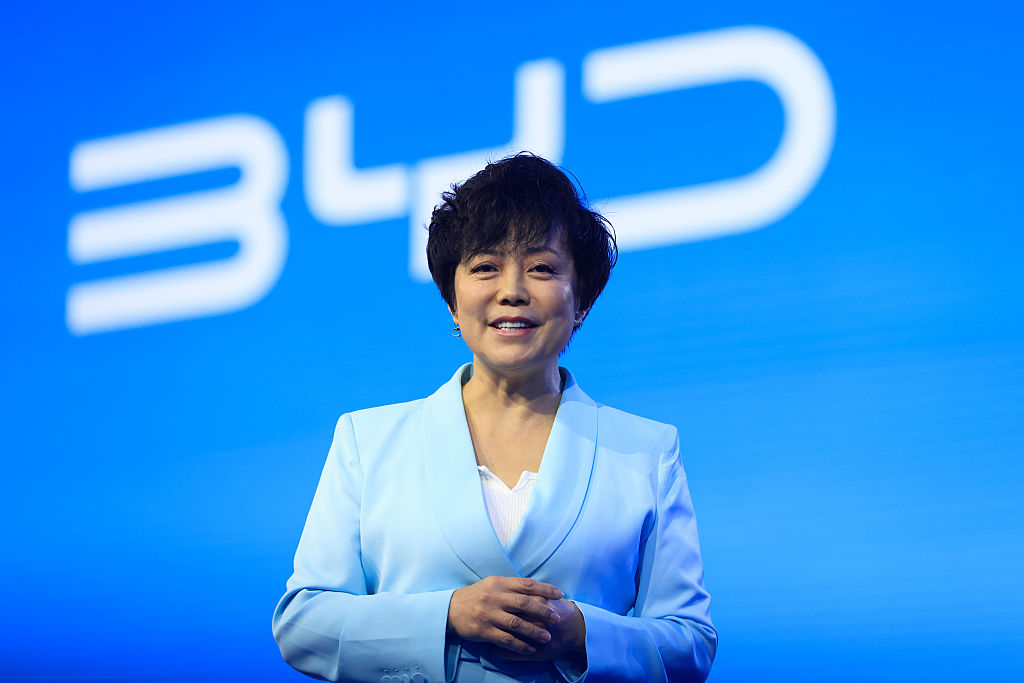 The Stella Show is still on the road – can Stella Li keep it that way?
The Stella Show is still on the road – can Stella Li keep it that way?Stella Li is the globe-trotting ambassador for Chinese electric-car company BYD, which has grown into a world leader. Can she keep the motor running?
-
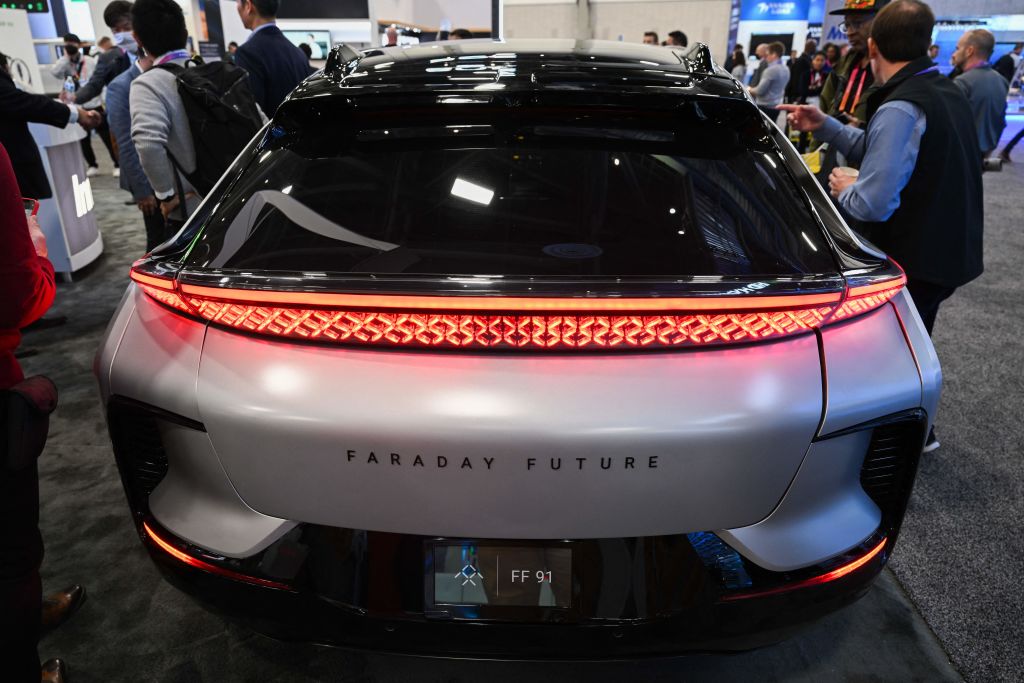 'EV maker Faraday Future will crash'
'EV maker Faraday Future will crash'Faraday Future Intelligent Electric is failing dismally to live up to its name, says Matthew Partridge
-
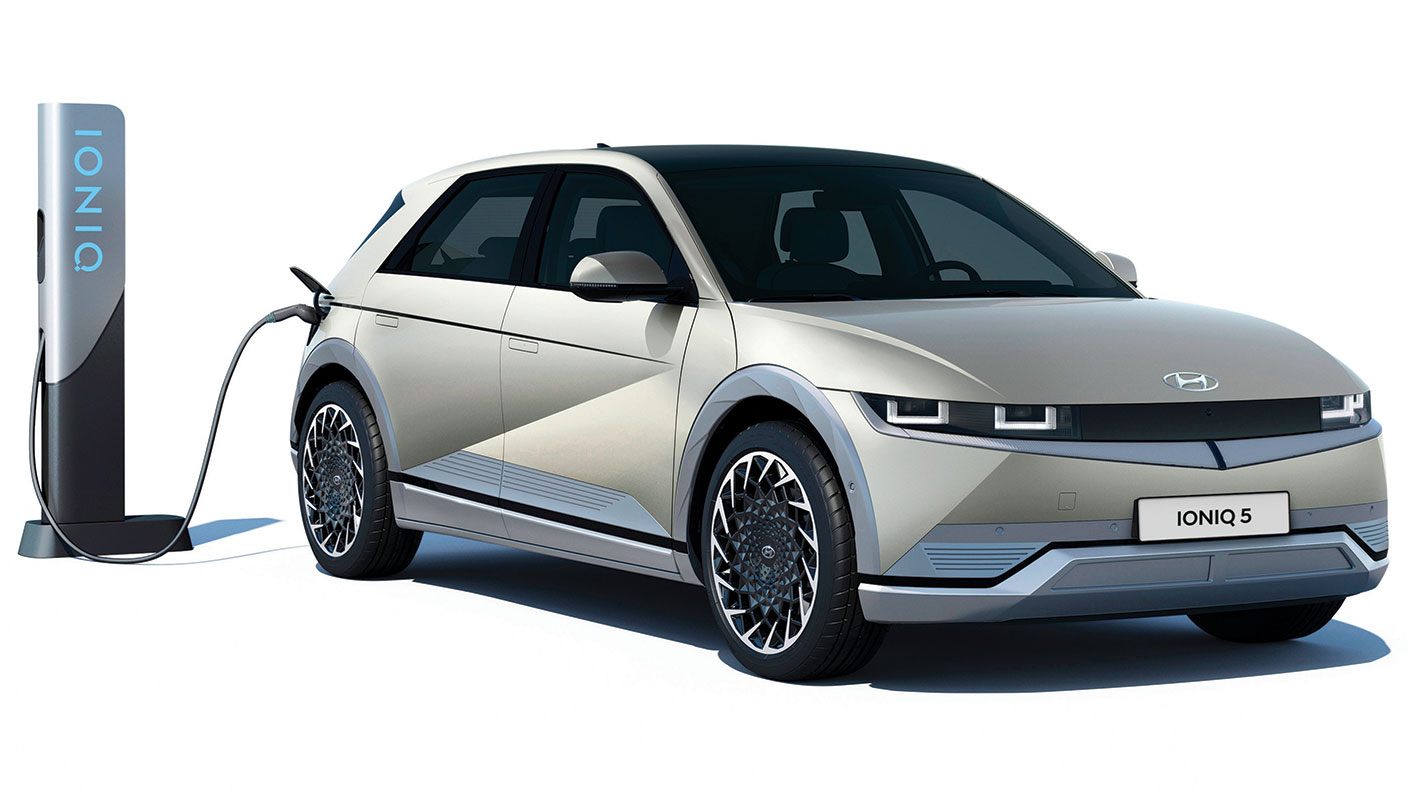 How to invest in the electric car market
How to invest in the electric car marketTips The vehicle sector suffered badly in the pandemic, and has since been buffeted by supply-chain problems, inflation and recession fears, says David J. Stevenson. But electric cars are thriving.
-
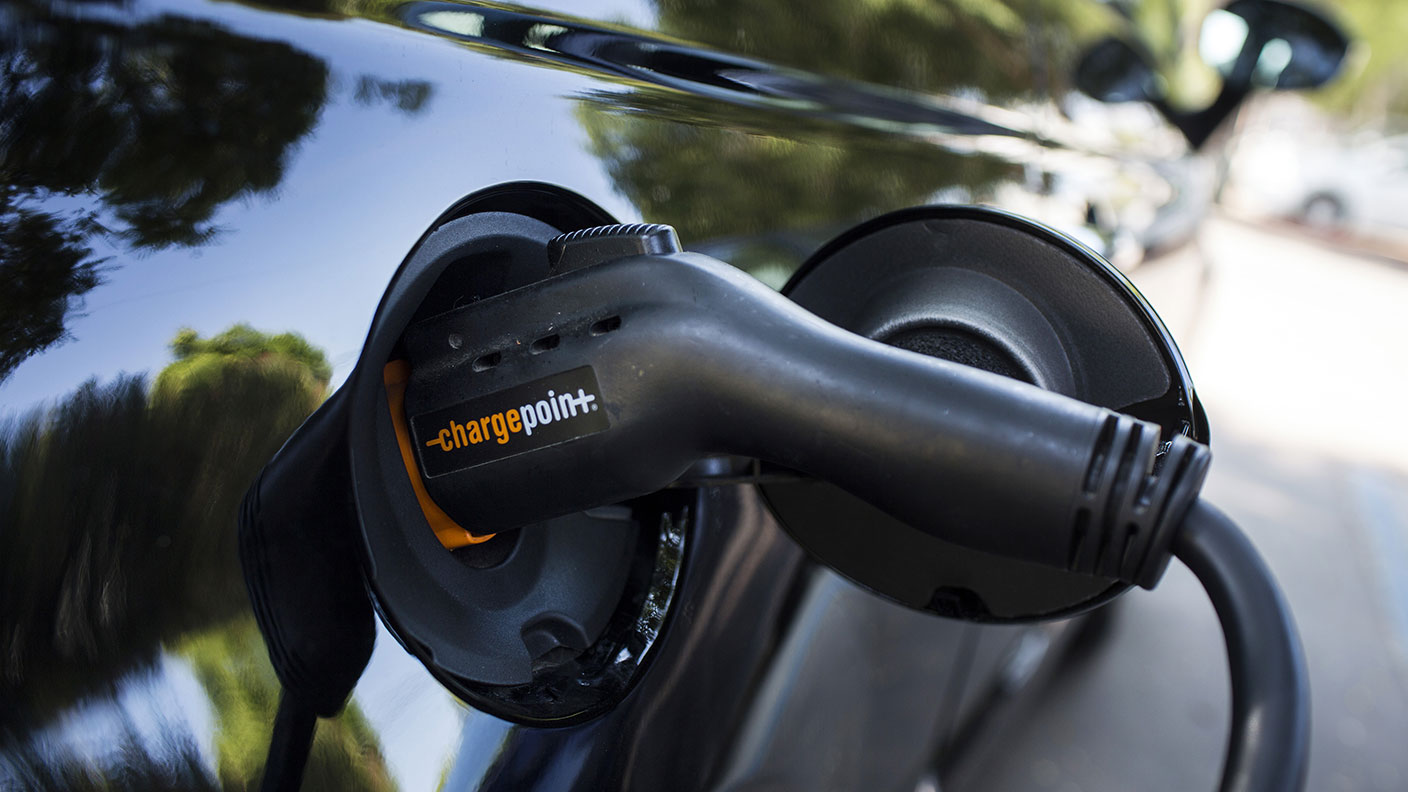 Three stocks that will profit from electric-vehicle growth
Three stocks that will profit from electric-vehicle growthTips Professional investor Konrad Sippel of Solactive, index provider for the Electric Vehicle Charging Infrastructure ETF, picks three firms solving the electric-vehicle charging challenge.
-
 Industrial metals: electric vehicles are driving a boom in prices
Industrial metals: electric vehicles are driving a boom in pricesNews The soaring popularity of electric vehicles is pushing up the price of the industrial metals that make up the batteries.
-
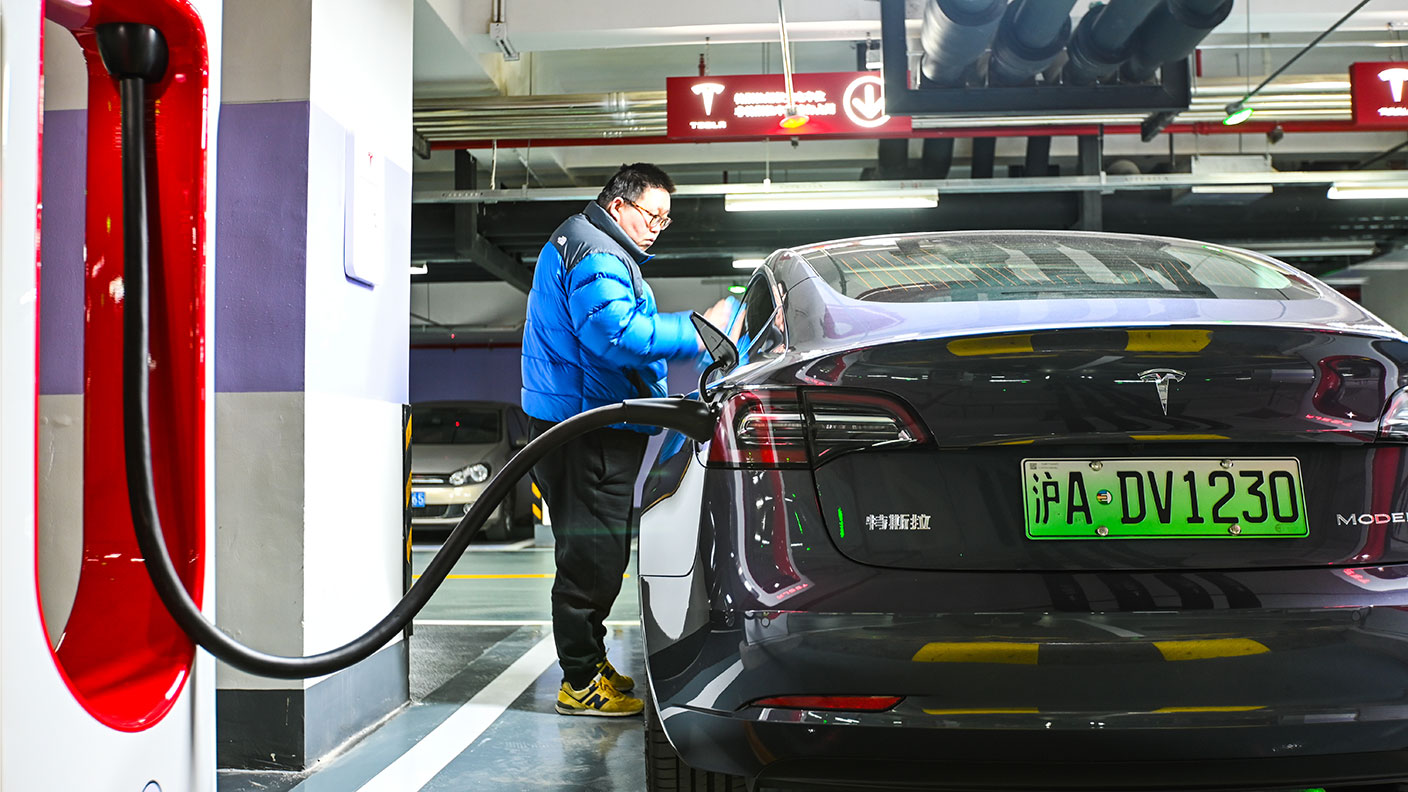 Think Tesla is a bubble? This might be the best way to bet on it bursting
Think Tesla is a bubble? This might be the best way to bet on it burstingOpinion The huge rise in Tesla’s share price means that, by market value, it’s now the sixth-largest company in the US and and the world’s biggest car-maker. Shorting it is a dangerous game. But there are other ways to bet on the bubble bursting. John Stepek explains how.
-
 China touts electric-car maker Nio as the next Tesla
China touts electric-car maker Nio as the next TeslaNews Shares in electric-car manufacturer Nio have rocketed over the past year. But can it keep motoring and live up to the hype? Matthew Partridge reports